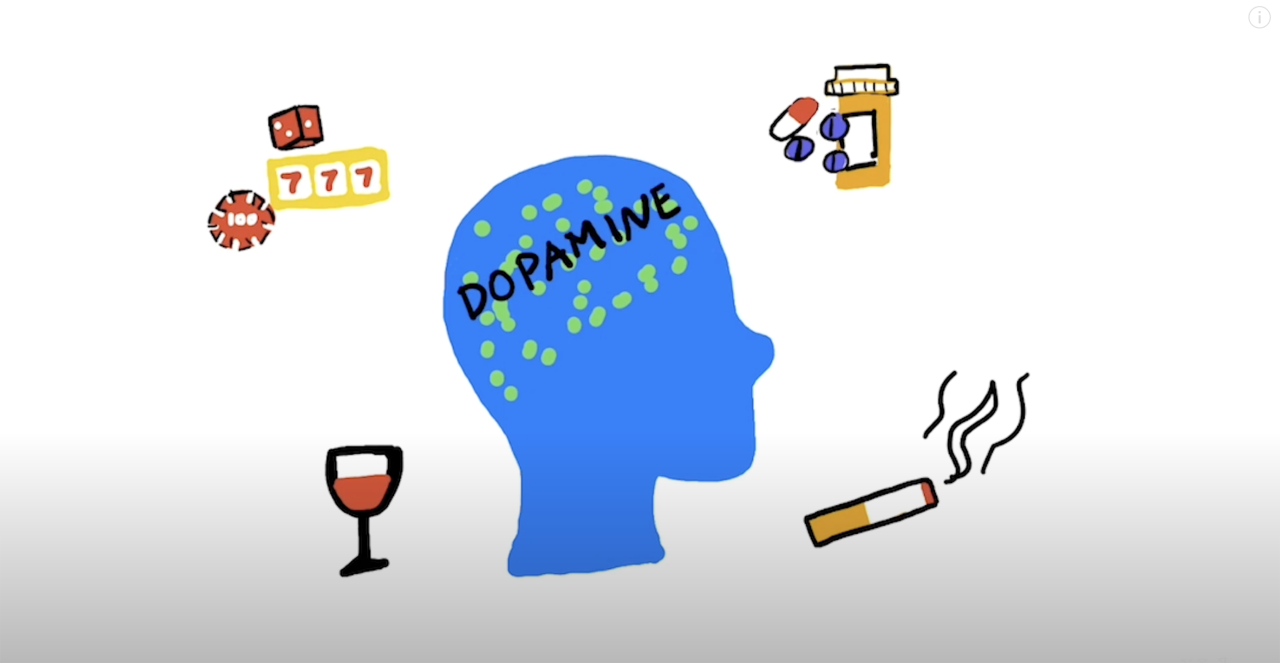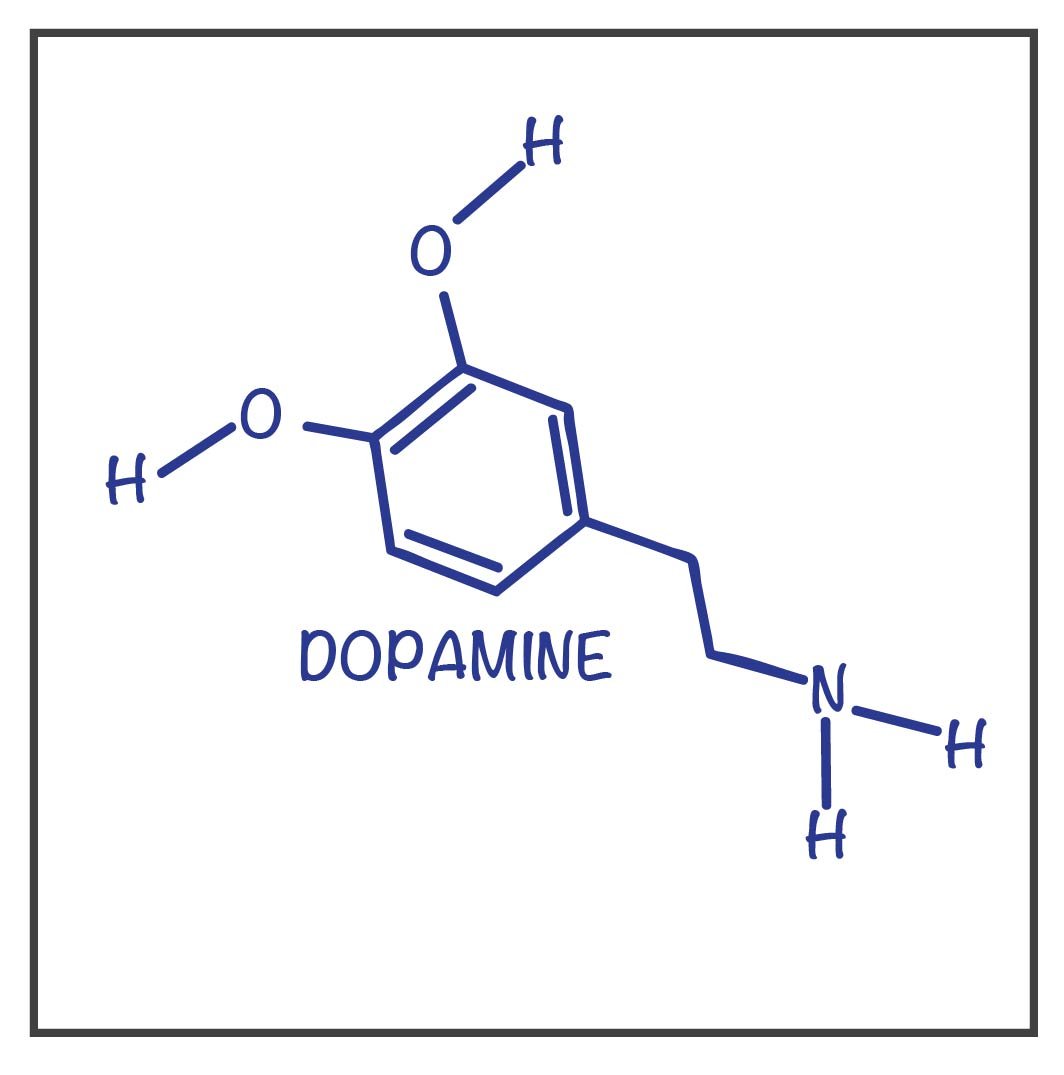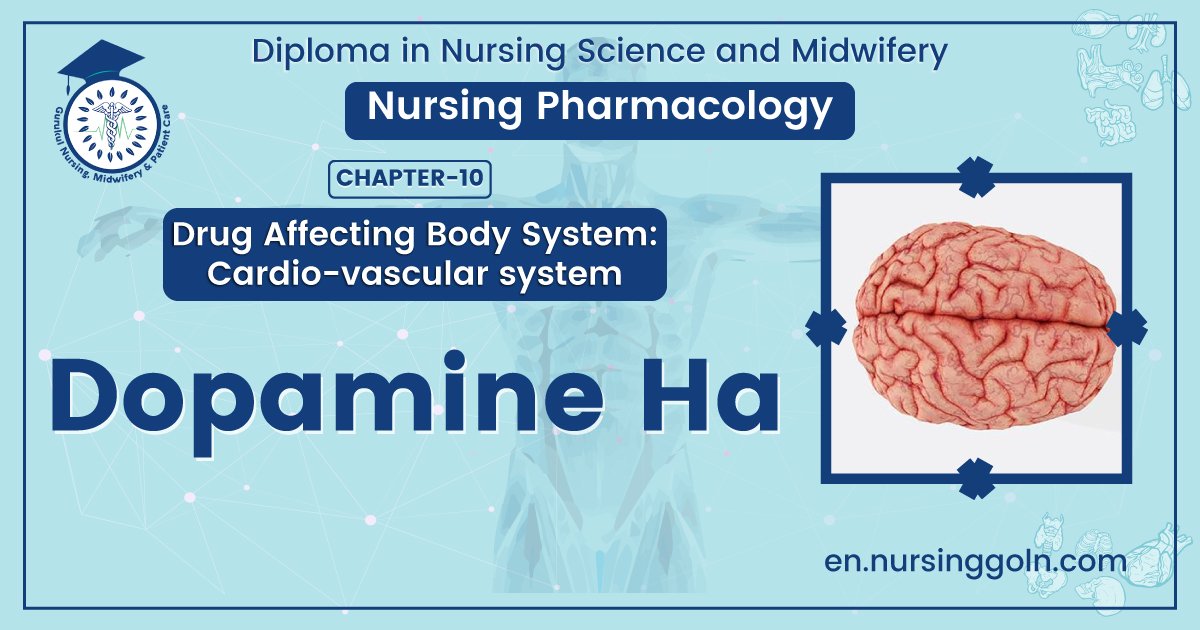Concept Of Dopamine – This book covers the entire syllabus of “Pharmacology” prescribed by BNMC- for diploma in nursing science & midwifery students. We tried to accommodate the latest information and topics. This book is an examination setup according to the teachers’ lectures and examination questions.
At the end of the book, previous questions are given. We hope in touch with the book students’ knowledge will be upgraded and flourish. The unique way of presentation may make your reading of the book a pleasurable experience.

Concept Of Dopamine
Dopamine in Cardiogenic shock.
- Dopamine is an adrenoceptor agonist.
- Only effective intravenously.
- It is given by continuous infusion.
- Plasma half-life: only 2 min.
Pharmacological action of Dopamine
| B-adrenoceptor agonist action | Positive inotropic action |
| Dopamine (D1) agonist action | Vasodilatation of splanchnic area (kidney, brain, heart) so, improves perfusion to vital organs |
| Action on D2 receptor | Dopamine activates D2-receptor and thus Suppresses the release of nor-adrenaline |
| Action on al-adrenoceptors | Vasoconstriction of the vascular bed, so diverts blood to the splanchnic bed. Release noradrenaline from nerve ending. |
Role of Dopamine in Cardiogenic shock
| Dopamine ẞ1 action: increase force of contraction Increase cardiac output (increased B.P) | Action on dopaminergic (D1) receptor Vasodilatation of splanchnic are (kidney, brain, heart) Increase perfusion to vital organs | a1 action: vasodilatation of skeletal vascular bed Diverts blood to the vital organs (Kidney. Brain, Heart) |

Dopamine affects brain regions that are involved in motivation, pleasure, and satisfaction. In addition, dopamine is involved in the regulation of mood, memory, learning, sleep, focus, movement, and other bodily processes.
